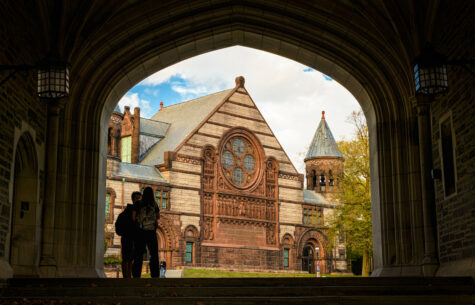Editorial: History Curriculum Should Be More Inclusive
May 28, 2019
The academic standards in Pennsylvania, according to § 4.12. of the Public School Code of 1949, say history includes the, “[…] interactions of culture, race and ideas; the nature of prejudice […]”
The law requires the teaching of interactions between cultures and races as well as the nature of prejudice; however, the curriculum does not mandate a truly inclusive education on these matters. The history curriculum should incorporate the major events and movements of minority groups from all over the country and the world.
A clear indicator of whether or not our current historic education system is truly comprehensive and inclusive are the AP classes offered by the College Board. They offer AP World History, AP United States History, and AP European History; however, there are no classes offered that focus on non-white groups/areas.
An article from The Century Foundation links this the common eurocentric history view that is taken up in education. A view that is picking and choosing specific pieces of history to teach.
Margaret Crocco, a professor and chairperson at Michigan State University’s Department of Teacher Education, said in an interview with The Atlantic, “If you aren’t telling the broader story about all human beings, then what you are representing is partial and flawed.”
The article goes on to say that making the history curriculum more inclusive, specifically regarding women’s issues, allows people to better understand how laws, systems, and movements came to be.
Developing a comprehensive understanding of the current world is a hallmark of education and is something that cannot be achieved without an inclusive education system.
An editorial from HuffPost said, “Education is the best way to dispel ignorance and create a safe and affirming school environment where all students, no matter their sexual orientation or gender identity, can prosper and achieve their full potential.”
Providing an education that includes marginalized groups, such as the LGBT community, allows people to learn more about them. With a more informed perspective, people will be less likely to further the oppression of these groups.
When teaching students about the past, the curriculum should include major events from all eras of history and across the world. If people are not taught a more inclusive version of history, they will never understand how the world we live in today was created.
In 2016, California lawmakers passed amendments to their history curriculum. This new legislation made their curriculum include the struggles of LGBT people as well as roles of several minorities in important section of history. This update is exactly what Pennsylvania, and the whole of the United States, needs to adopt.
We can help to address this issue locally by talking with the Derry Township School Board. In addition, you can contact your federal and state representatives and telling them how the history curriculum should be updated.


